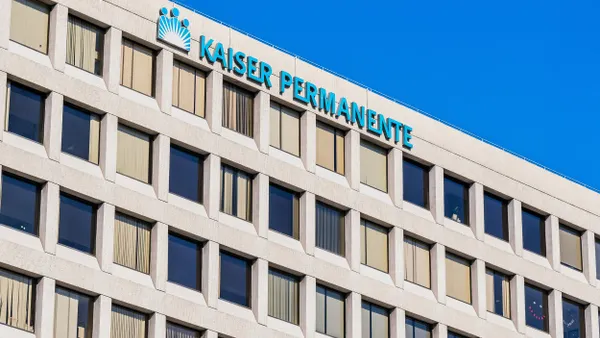Dive Brief:
- HCA Healthcare raised its full-year profit and revenue outlook on Friday after newly approved state supplemental payment programs in the third quarter helped boost the for-profit’s revenues past Wall Street expectations.
- The operator now expects revenue between $75 billion and $76.5 billion, and net income between $6.5 billion and $6.72 billion for 2025.
- Rising same-facility equivalent admissions and higher surgical volumes also contributed to HCA’s $19.2 billion in revenue for the third quarter — a 9.6% year-over-year increase.
Dive Insight:
Analysts questioned whether HCA’s new 2025 outlook might be cautious given its outperformance in the third quarter.
“The revised guide, we think, under a number of scenarios with [Medicaid state supplemental payment program] factors probably looks pretty conservative,” wrote Whit Mayo in a Leerink Partners note on Friday.
Finalized Medicaid state supplemental payment programs in Tennessee, Kansas and Texas added $240 million to HCA’s adjusted earnings before interest, taxes, depreciation and amortization during the quarter and contributed to about half of HCA’s year-over-year growth in inpatient revenue per equivalent admission, CFO Mike Marks said on a Friday morning call with investors.
The funds from the government are meant to offset the shortfall between Medicaid reimbursement rates and actual care costs, and providers rely on them financially.
HCA said other state supplemental payments, including those from Florida, Georgia and Virginia, could be approved by year’s end, according to Marks. However, HCA does not expect the CMS to approve any state supplemental payments during the government shutdown.
The system also recorded a mild increase in volumes during the quarter, which helped boost revenues. Same-facility equivalent admissions increased by 2.4% year over year, while emergency room visits, inpatient and outpatient surgeries climbed by about 1%.
Analysts on Friday’s investor call also pressed executives about the possible impact of disruptions to enhanced Affordable Care Act subsidies.
The subsidies, first rolled out during the COVID-19 pandemic, are set to expire at the end of 2025 without further action by Congress. Without an extension, millions are expected to become uninsured as premiums spike and providers are projected to lose billions in revenue. The fate of the subsidies is at the center of a funding battle between Democrats and Republicans that caused the government to shut down earlier this month.
Marks said HCA was not ready to size the potential impact of ACA Marketplace disruptions, saying the circumstances surrounding any deal in Washington were “fluid.”
“When we get to the fourth quarter call... we’ll have a lot more information,” Marks said.
For now, CEO Sam Hazen said HCA, like other providers, will continue to lobby for a subsidy extension. Prior to the shutdown, the CEO said he saw “greater recognition by legislators of the negative impact this issue will have on families, small businesses and individuals than earlier in the year.”
However, “at this point... we still do not know how this policy will play out,” Hazen said.














